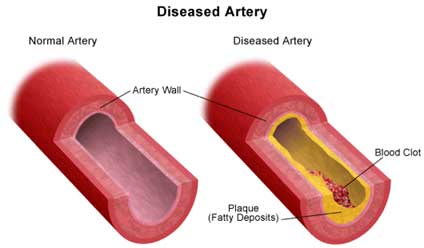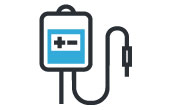Cardiac CT
Using a test that visualises the heart anatomy, and coronary circulation.
Consultation
What is Cardiac CT?
Chest pain & breathlessness
The heart, like any part of the body, requires its own blood supply and these are known as the coronary arteries. Narrowing of the coronary arteries is a natural process of ageing (can commence as early as the age of 20 onwards) caused by cholesterol “furring up” the inside of the arteries, known as coronary artery disease (CAD). When CAD is mild or moderate, you may not experience any symptoms. But when the CAD is severe, you may develop chest pain (and/or breathlessness), typically on exertion – this is known as stable angina. Unstable angina is present when chest pain occurs on minimal exertion or at rest and is considered the stage before a heart attack.

Cardiac CT can detect CAD at any stage in its development. There are 2 aspects to cardiac CT:
- Calcium score, giving a low/medium/high probability of having significant CAD
- CT coronary angiogram where dye is injected through a simple vein in your arm which travels to the coronary arteries, allowing the CT images of the coronaries to then be acquired.
This is a typical CT image that would be obtained of your heart.
Insured?
Dr Banypersad is an authorised provider for all the major insurance companies, including BUPA (fee-assured).
All cardiac CT and MRI scans will take place at The Spire Manchester hospital.
Cardiac CT has shown to reduce the number of heart attacks.
Cardiac CT has been shown to reduce the number of heart attacks over and above standard care (generally using exercise treadmill testing) to risk stratify patients. This is why the National Institute of Clinical Excellent in the UK (NICE) now recommend cardiac CT as the first-line test for detecting coronary artery disease in any patient with chest pain, whether it be typical or not typical of angina. (https://www.nice.org.uk/guidance/cg95).
The latest guidance from the European Society of Cardiology (2019) also recommends cardiac CT in these patients, but also accommodates other imaging modalities depending on availability and local expertise; I am able to perform and report all of these modalities (except nuclear medicine).
Cardiac CT can also be useful in patients who have had bypass surgery by assessing for any recurrence of disease within the bypass grafts.
Dr Banypersad will assess any adult patient’s symptoms during the consultation and proceed on to performing and reporting your cardiac CT scan if indicated.
The importance of a Cardiac CT lies in its predictive value.
A Cardiac CT differentiates
- Normal coronary arteries, who do not require any treatment
- Mild or moderate CAD who may require treatment with statin +/- aspirin
- Severe CAD who may need additional medications to the above (such as beta-blockers or GTN spray) and procedures such as coronary artery stents or bypass surgery.
- Any patient with chest pain
- Patients who have had bypass surgery
This is not an exhaustive list:
- Irregular heart rhythms may yield an indeterminate scan result
- Imaging in patients with renal function eGFR < 30ml/min is generally best avoided
- CT coronary angiograms are best avoided in patients with significant asthma because of the need to administer intravenous β-blocker medication (IV Metoprolol).
NB: Patients taking regular prescribed β-blocker medication are fine.
Tests with Dr Banypersad

Cardiac MRI
A non-invasive test that uses an MRI machine to create magnetic and radiofrequency waves to show detailed pictures of the inside of your heart.

Cardiac CT
A heart-imaging test that uses CT technology with intravenous (IV) contrast (dye) to visualize the heart anatomy, and coronary circulation.

Echocardiography
A test that uses ultrasound waves to produce live images of your heart which show how your heart and its valves are functioning.

Appointment
Dr. Banypersad's associates will help you with these tests. Through an appointment best course of action can be advised.